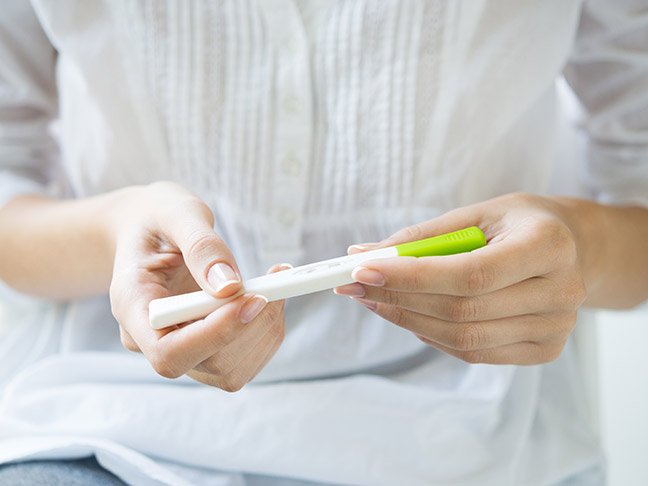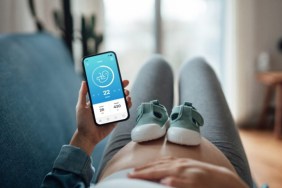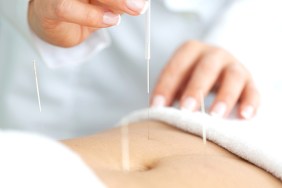Before you pick up that pregnancy test in hopes of seeing that big fat positive—and before you even get busy—there’s another test you may want to use first: an ovulation kit.
If you’re trying to conceive, an ovulation kit can help determine your most fertile days. Whether you choose First Response Ovulation Test or Clear Blue Advanced Ovulation Test, ovulation test strips or ovulation test kits are a handy way to test your urine for a significant rise in a specific hormone that can be detected a day or two before ovulation. Ovulation kits may sound daunting—what about the old days when you just had sex and got pregnant? But knowing when you are most fertile may give you valuable peace of mind and take away some of the guesswork that comes with baby-making. Here’s everything you need to know about ovulation test kits and how they work.
What is ovulation?
Just to clear up the basics (we know it’s been a long time since you sat in that high school health class), ovulation is part of your (roughly) 28-day menstrual cycle. During ovulation, an egg is released from your ovary. After traveling down into the fallopian tube, the egg waits for a sperm to swim by and burrow itself into the egg. If this process is successful, the sperm will fertilize the egg and continue down the fallopian tube, ending up in your uterus for implantation and pregnancy.
What is an ovulation prediction kit (or OPK)?
An OPK is a way for women to test their hormone levels and determine the best window for conception. Much like a pregnancy test, an ovulation prediction kit or fertility monitor relies on you peeing on a stick. Follicle-stimulating hormones (FHS) help develop the egg that is to be released by one of the ovaries, and it is the spike in Luteinizing Hormone (LH) that is detected in your urine, alerting you that ovulation is about to occur. Bear in mind, LH is present throughout your menstrual cycle and there is a finite window when these levels spike, so you’ll already have to have a general idea of when you are ovulating. It is the job of an ovulation kit to detect the surge in LH (however brief) which triggers ovulation, so try testing at mid-day, when the LH levels produced by the body might be at their highest. Again, ovulation test kits do not actually tell you when you are ovulating, which you can determine based on your menstrual cycle.
How do I use an ovulation kit?
Simply hold the stick in your urine stream (or dunk the test strip into a cup of your pee, if you prefer) for five seconds. You’ll know the test is working when you see a “test line” appear on the stick. Wait another five minutes for the urine to fully absorb, at which point the lines on the test will indicate if there is a surge in LH.
I’ve taken the test—now what?
If your ovulation kit results confirm that your LH levels have spiked, you are likely at your most fertile between one and three days following. It’s best to have sex during this timeframe when the unfertilized egg has about a 24-hour window to become fertilized by the sperm. If a surge in LH is not detected, recalculate when you might be ovulating and try again.
Is an ovulation kit right for me?
Although many women get pregnant on their own, you may find it helpful to use something like First Response Ovulation Test or Clear Blue Advanced Ovulation Test if you have been trying to conceive for more than a few months. It might also be helpful for you if you have experienced irregular periods and don’t know when you are at your most fertile. If this is the case, and you’re not sure when to use the test, begin to monitor your cervical mucus and wait to take the test when you’ve noticed an increase in this clear, stretchy, egg white-like mucus that is secreted around the time of ovulation. Keep in mind that OPKs can become less reliable the older you get when LH levels are regularly increased. It’s worth speaking to your doctor or midwife to find out whether an ovulation kit is right for you. Of course, many couples choose to forego the use of fertility and ovulation kits, as the kits take away some the fun and romance of sex.
More on ovulation and trying to conceive:
- When Do You Ovulate?
- How To Take A Pregnancy Test The Right Way, Step-By-Step
- When Are You Most Fertile?
Photo: Getty








